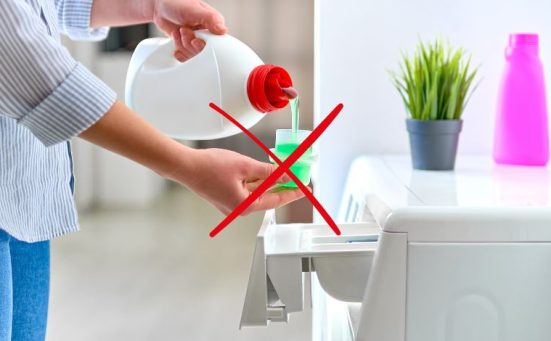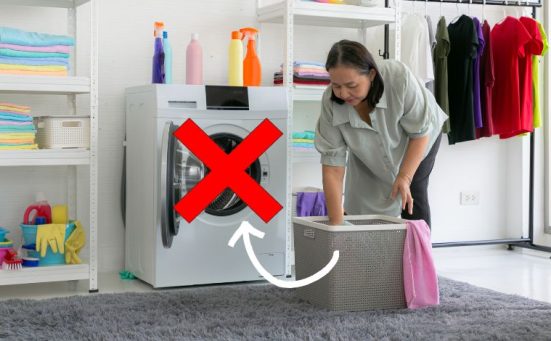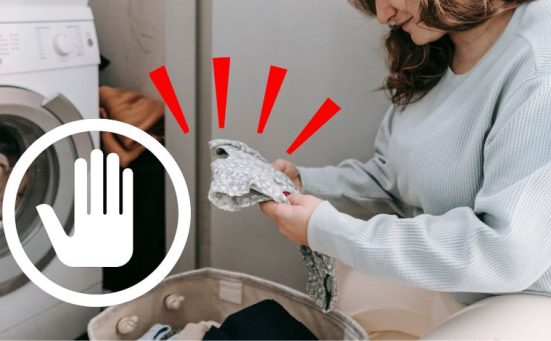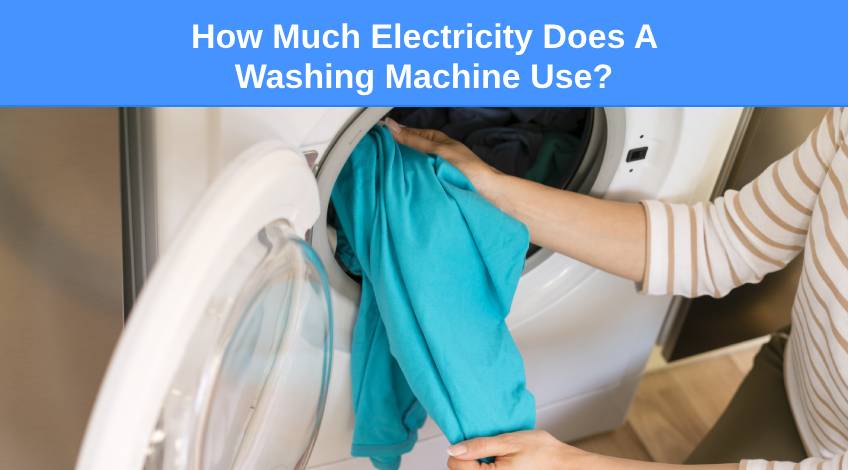
How Much Electricity Does A Washing Machine Use?
With ever increasing energy costs here in the UK, it’s important to know just how much electricity your washing machine uses. Once you understand the energy usage of your appliances better you can see where you can make savings on your energy usage which translates to lower energy bills.
If you want to know more about how much electricity your washing machine uses, keep reading. In this article I look into the electricity usage of washing machines and other household appliances and offer ways to reduce energy use.
How Much Electricity Do Household Appliances Use?
The truth is every appliance uses a different amount of electricity based on how long it’s used for, how powerful the appliance is (in watts) as well as the cost of electricity in your area. Plus of course, the cost of electricity alters in relation to any price caps etc.
With that said, let’s look at the average prices for running common household appliances using the most current energy average prices.
The Estimated Average Costs Of Running Household Electrical Appliances
| Appliance (average Power Rating In Watts) | Estimated Hourly Running Cost |
|---|---|
| Washing Machine (2100 W) | 52p |
| Electric Shower (9000 W) | £2.20 |
| Immersion Heater (3000 W) | 75p |
| Electric Kettle (3000 W) | 72p |
| Electric Heater (2500 W) | 62p |
| Tumble Dryer (2500 W) | 62p |
| Electric Oven (2100 W) | 52p |
| Electric Hob (2000 W) | 49p |
| Hairdryer (2000 W) | 48p |
| Iron (1500 W) | 38p |
| Microwave Oven (1000 W) | 26p |
| Toaster (1000 W) | 24p |
| Vacuum Cleaner (900 W) | 22p |
| Fridge-Freezer (300 W) | 8p |
| LCD TV (120 W) | 3p |
| Extractor Fan (20 W) | 1p |
It’s worth noting that not all of these appliances will be constantly running for an hour. For instance, no one uses a toaster or a kettle continuously for 60 minutes but if you did the estimated cost is shown which can be worked out to the minute by dividing by 60.
Plus larger items like fridge-freezers will stop drawing any electricity once they achieve their set temperature and have been worked out by averaging the power usage over a 24 hour period.
How Much Does It Cost To Run A Washing Machine?

When I looked into the amount of electricity a washing machine used I took an average washer that has a power rating of 2100 Watts or 2.1 kWh. At current energy prices this works out at around 51.45p per hour.
I calculated this by multiplying the power rating in kilowatts by the hours used per day. So;
kWh x hours used = cost of electricity used per day.
How Much Electricity Do Washing Machines Consume?
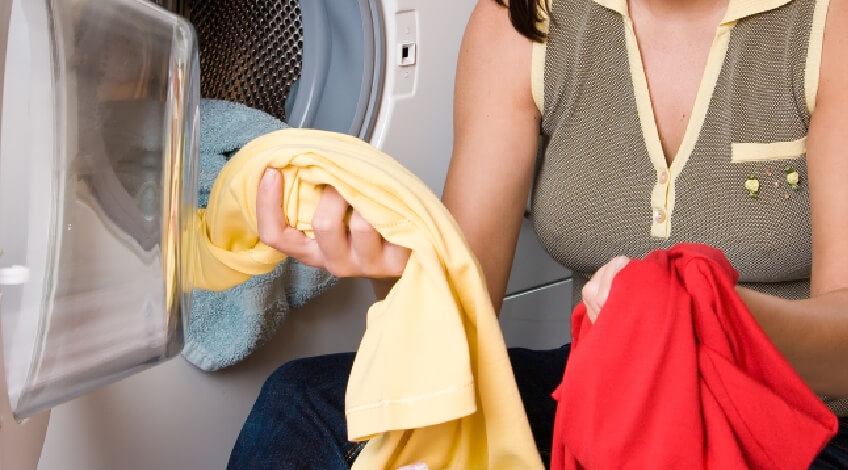
To understand how much electricity your washing machine uses, we need to look at the energy consumption per cycle.
A standard washing machine consumes approximately 0.793 kWh per cycle.
This usage translates to an energy cost of around 19p per cycle, considering the current UK price cap of 24.5p per kWh.
However, the exact electricity usage can vary based on the model and its energy efficiency.
For instance, an A-rated washing machine might use as little as 0.5 kWh per cycle, costing just 12p at current energy prices.
Whereas a less efficient model, like an E rated washer, could use up to 0.98 kWh per cycle, resulting in a cost of around 24p each cycle.
How Much Electricity Do Washers Use Per Year?
If we assume you run 200 cycles per year, an average washing machine’s energy consumption is about 158.6 kWh, costing roughly £38.86.
This average can drop to £24.50 for more energy-efficient models, which means you can make potential savings by choosing a higher energy-rated appliance.
If You Want To Know For Sure, Get An Energy Monitor
The only true way to get an accurate figure for how much actual electricity your washing machine is using during each cycle is to use an energy monitor. There are a number of different factors that can have an effect on the energy usage of an appliance.
An energy monitor is a small device that plugs into the wall socket and you then plug your appliance into the device. The device will then show you just how much that appliance costs to run.
Alternatively you can get energy monitors that track the energy usage of your whole home. If you have one of these all you do is compare readings from when the appliance is running to when it isn’t.
Smart Meters
If you have a smart meter fitted in your home, you can monitor the cost and energy usage of any appliance via the smart meter.
It should give you the amount of energy being used in real time which can allow you to see exactly how much electricity the appliance is using.
Is The Energy Rating Of The Washer Important?
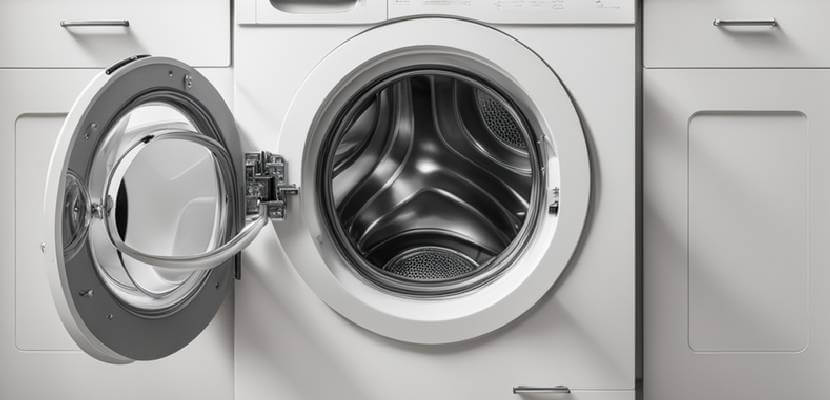
If you’re in the process of buying a new washing machine (or other large appliance) the energy rating is definitely something you should consider. If the appliance has a poor energy rating, it will use far more electricity and cost you far more to run over the course of a year.
The energy ratings run from A-G with A being the most energy efficient.
Some A-rated washers can cost around £28 per year if used 4 times per week. By comparison some E-rated washers cost around £43 for the same amount of uses.
With that said, there are other ways you can reduce your energy usage when doing the laundry, which I explain below.
Ways To Reduce Energy Usage When Doing Laundry
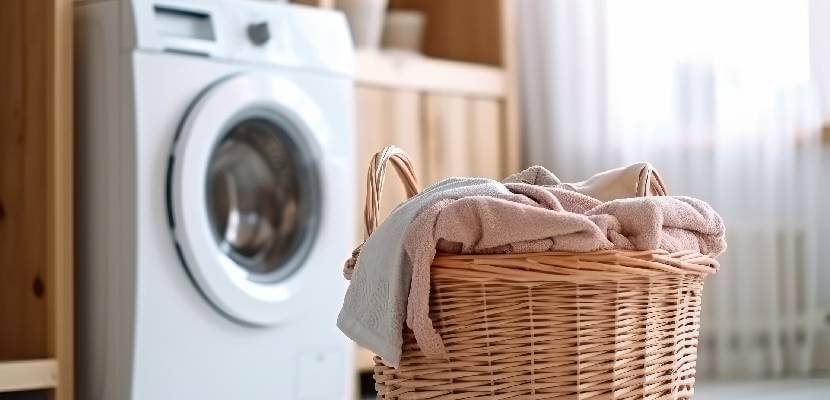
There are several things you can do to save on your energy consumption when doing the laundry which include;
- Switch To Lower Temperature Wash Cycles
It has been estimated that simply by switching from a 40o C wash cycle to a 30o C cycle can save up to 40% of the electricity used. Modern detergents are designed to be effective even at temperatures of 20o C so you won’t have to compromise on cleaning ability. - Save laundry Until You Have Enough For A Full Load
We all know that it’s not a good idea to overload the drum on the washer, but ensuring that it always runs with a full load can save a substantial amount. This is because you can reduce your overall usage by up to 50%. - Regularly Maintain Your Washer
It’s important for the efficiency of your washing machine that you perform regular maintenance. This includes regularly cleaning the filter, running a monthly hot service wash, and ensuring that you never overload the drum. - Buy A More Energy Efficient Washer
If you own a washing machine that is over 6 years old, replacing it with a newer, more energy efficient model could reduce your energy usage. - Use The Washer During Off Peak Times
If you are on a two tier tariff, you should do your laundry when the power is charged at a lower rate. This is typically a 7 hour period somewhere between 11 pm and 8 am (consult your energy supplier for more details). This won’t necessarily reduce the amount of energy you use, but it will save you money.
SEE ALSO: How Much Water Do Washing Machines Use? (in the UK)
Frequently Asked Questions
At the current UK price capped energy rate of 24.5p per unit of electricity and assuming the washing machine uses 2.1 kWh of electricity, it will cost around 52p per hour.
You can reduce your electricity usage when doing the laundry by selecting a lower wash temperature. Modern detergents are designed to work at temperatures as low as 20o C. By switching from 30o to 20o you can save an estimated 40% on electricity usage.
Yes, the energy rating does matter on a washing machine, especially if you want to reduce your energy usage and save money. A typical E-rated washing machine will cost around £43 per year to run whereas a typical A-rated washer will cost around £28 per year for the same amount of washes.
Also, follow us on Pinterest ...

